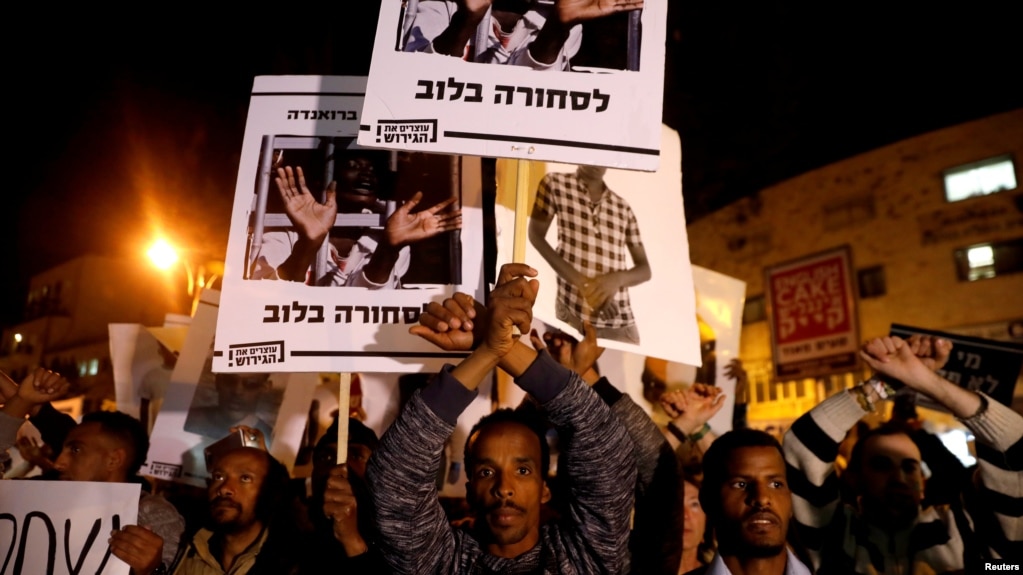Israel Cancels Deportation Orders Against African Migrants

JERUSALEM —
Israel has abandoned a plan to deport thousands of African migrants.
About 37,000 African migrants have gotten a reprieve after Israel canceled deportation orders that had left the community in limbo. In February, the government handed out papers to thousands of African males, which amounted to an ultimatum: leave the country in two months or go to prison.
The plan was abandoned when Rwanda backed out of a deal to take the migrants in, saying it could not guarantee their safety.
In a radio interview, Public Security Minister Gilad Erdan admitted that the government has "no solution" for the problem of the "infiltrators," as they are called here. He blamed Israel's Supreme Court and human rights groups, which warned that forcibly deporting the migrants back to Africa would endanger their lives.
Most of the Africans came from war-torn Eritrea and Sudan, and entered Israel illegally over the past decade. Teklit Michael, who came from Eritrea, breathed a sigh of relief.
"I am very happy to see the deportation policy is canceled," said Michael. "And now is the right time for the Israeli government to give a solution for the asylum seekers who came from Africa: a refugee status or to answer their asylum claim application."
But the Israeli government rejects the Africans' claim they are refugees, with this legislator describing it as a "lie."
Yoav Kish of the ruling right-wing Likud party said they are economic migrants seeking to escape poverty in Africa, and therefore Israel is not obligated to take them in.
Officials blame the Africans for rising crime in southern Tel Aviv and accuse them of damaging the Jewish character of the state. So the government is looking for new ways to pressure them to leave voluntarily.
But many Israelis are sympathetic toward the migrants. They say Israel has a moral responsibility to offer them asylum because the country was built by Jewish refugees fleeing the Holocaust


![[AIM] Asmarino Independent Media](/images/logo/ailogo.png)